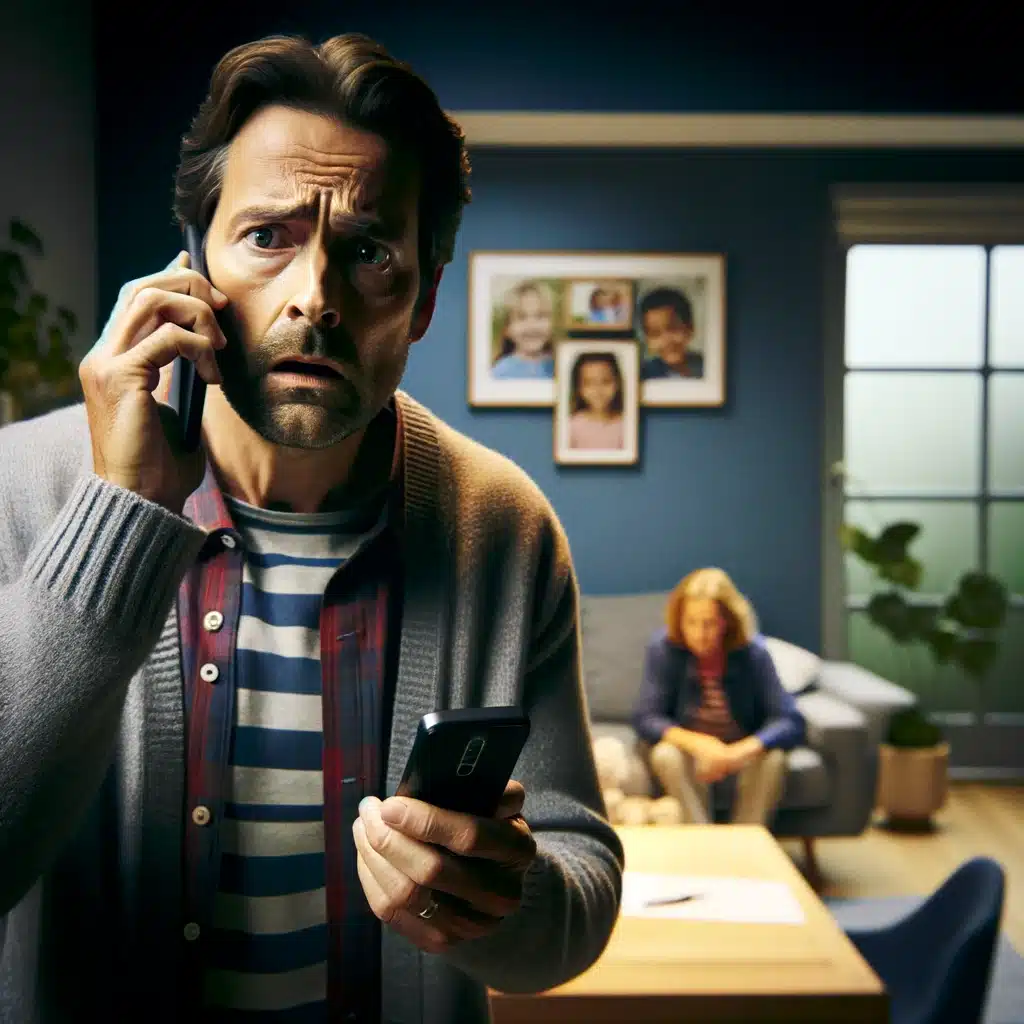How would you respond if someone falsely accused you of abusing or neglecting your child? While it may seem unlikely, it’s vital to stay proactive as child protective parents. Without a plan, you could find yourself at a serious disadvantage. Even if you believe such accusations are improbable, preparation is key. Thinking ahead and understanding how to navigate these situations can protect both you and your child.
Anyone can file a report to Child Protective Services (CPS) alleging child abuse or neglect. These reports might come from someone close to you or even a stranger acting on a misinterpreted observation. Such a scenario could lead to your child being taken from your home based on a false claim.
At the Law Office of Bryan Fagan, we are dedicated to assisting parents like you. Discovering a false report against you can feel devastating. You cannot expect CPS to find the truth without help. Today’s blog post will guide you through the necessary steps to safeguard yourself and your child after receiving a false CPS report.
What is child abuse?
Child abuse in Texas has to do with physical harm to a child or sexual molestation. Specifically, the Texas Family Code defines child abuse as a mental or emotional injury to a child that results in an observable and material impairment in the child’s growth, development, or psychological functioning. There are multiple areas of child abuse that you could be accused of. Physically hitting or striking a child or sexually molesting a child are two of the more common reports that come into CPS regarding the abuse of children.
How can CPS receive a false allegation of abuse against you?
Mistakes are a common part of life; we all make them occasionally. However, the everyday errors we make usually don’t lead to severe consequences. For instance, forgetting to include an apple in your child’s lunch might make them hungrier by the end of the school day, but it isn’t catastrophic.
Yet, a false report to Child Protective Services (CPS) can have profound effects on your family. Since CPS allows anonymous reporting, some individuals may feel more inclined to report incidents they otherwise wouldn’t. Often, well-meaning people misinterpret child abuse laws and might report something they haven’t directly observed. Such actions, based on hearsay, can dangerously impact both you and your child.

Consider a scenario where a neighbor sees you disciplining your child on the front lawn and suspects abuse. She might call CPS, leading them to investigate. Suddenly, you find yourself discussing the event with CPS agents at your home, a situation no parent wants.
This becomes even more distressing when the incident involved was as benign as preventing your son from running into the street, unseen dangers notwithstanding. Your neighbor only witnessed you pulling your son back to safety, not the speeding car. While CPS might eventually conclude there’s insufficient evidence to proceed, avoiding any involvement with child protective services is preferable.
How does CPS conduct investigations?
When Child Protective Services (CPS) receives a report of abuse or neglect, they quickly assign a caseworker to your case. This caseworker will visit your home, introduce themselves, and explain their presence. You then have several options. One is to not answer the door; the caseworker will likely leave a business card and try to contact you again later. If they cannot reach you, CPS might close the case due to insufficient evidence.
You can also talk to the CPS caseworker without letting them inside. CPS may seek a court order to enter your home, but this usually happens later, especially during your first investigation. Cooperating from the outset might resolve any misunderstandings quickly, possibly leading to an “unable to determine” or “rule out” status for the investigation.
CPS investigations are time-sensitive, aiming to decide a child’s long-term placement within a year. If your child is taken, they must be returned to you or placed in another guardianship by the deadline. During this time, CPS might offer services to support your family. Keeping open lines of communication with CPS is critical, especially if your child is removed from your home.

Hiring a competent CPS defense attorney is essential during the investigation. CPS will make recommendations to the court about what they see as best for your child. These might include reunification, temporary placement with relatives, or in severe cases, terminating parental rights for foster care placement. Understanding and preparing for these possibilities is key in any child protective case.
Is it out of the ordinary to be accused of child abuse?
Facing a Child Protective Services (CPS) case can feel like a random and terrible blow, even for parents who believe their actions were appropriate discipline. If you’re falsely accused of child abuse or neglect, you must develop a strategy to clear your name and continue parenting effectively.
Accusations of child abuse or neglect are common and can come from anyone. The process for reporting to CPS is anonymous, but that doesn’t mean you can’t hold someone accountable for a knowingly false report. However, if someone reports in good faith and it turns out to be incorrect, that’s different.
Professionals like teachers, judges, attorneys, and medical doctors are mandated to report any signs of abuse or neglect. Sometimes, they may report out of caution, potentially triggering unnecessary CPS investigations for families that shouldn’t be involved.
These professionals are trained to recognize abuse or neglect, but anyone can report to CPS. The general public has less experience with these matters, which means as a parent, you must be vigilant in preparing your defense and managing your public persona. Sadly, you never know who might observe a moment of vulnerability.
When a child reports abuse to an educator, the educator will likely file a report, regardless of the allegation’s credibility. Educators are not required to verify the truth before reporting; they must act on any suspicion of abuse to avoid legal repercussions.
One of the most daunting scenarios is when a child makes a false abuse or neglect claim against a parent. A teenager might file a false report to retaliate over parenting decisions, or a co-parent might manipulate a child to gain an upper hand in custody disputes.
There are multiple ways CPS might wrongfully accuse you of abuse or neglect. While you hope the truth prevails, you can never be certain. All you can do is prepare for a contested process. Partnering with an experienced family law attorney from the Law Office of Bryan Fagan can be crucial in protecting yourself and your child from false accusations.
What can you do if CPS contacts you regarding an allegation of abuse of your child?
Once CPS contacts you, time is no longer on your side to formulate a defensive strategy. You might consider using the information from CPS to start planning your response, but remember, you’re already facing an active case. Analyze the claims made by CPS carefully. If they seem implausible, question the details and request copies of any intake documents they have.
It’s possible that the CPS investigator won’t disclose what triggered the abuse report. Reflect on recent events that might have led to the investigation. Often, a specific incident, such as disciplining your child in public, could inadvertently prompt a call to CPS.
Interacting with CPS can be emotionally charged, especially when facing a false report of abuse or neglect. While it might be instinctive to react with anger, it’s crucial to maintain composure and treat the investigator with respect, regardless of your personal feelings.

If you’re unsure about your next steps, consult with a seasoned family law attorney, particularly one experienced in defending families against wrongful accusations by child protective services. During such investigations, making informed decisions is key—hasty choices can lead to unfavorable outcomes.
Being a child protective parent means more than providing daily care—it also means preparing for unexpected challenges like false accusations. By staying informed, developing a plan, and knowing your legal rights, you strengthen your ability to safeguard your family. Proactive steps ensure that if such a situation arises, you can respond with confidence and protect both your child’s well-being and your parental rights.
Thank you for joining us at the Law Office of Bryan Fagan’s blog. Our dedicated family law attorneys across Texas fight vigorously for our clients, aiming to secure the outcomes they need in CPS defense cases. If you found this post helpful, we hope you’ll return for more insightful content on Texas family law tomorrow.
Questions about the material contained in today’s blog post? Contact the Law Office of Bryan Fagan
If you have any questions about the material contained in today’s blog post, please do not hesitate to contact the Law Office of Bryan Fagan. Our licensed family law attorneys offer free-of-charge consultations six days a week in person, over the phone, and via video. These consultations are a great way for you to learn more about the world of Texas family law as well as how your family’s circumstances may be impacted by the filing of a divorce or child custody case.
Other Related Articles:
- How to Get Your Kids Back from Texas CPS: Effective Strategies for Parents
- How Do You Fight a False CPS Report?
- Guardians of Justice: The Law Office of Bryan Fagan on CPS False Positives in Texas
- Understanding CPS Authority: Can Child Protective Services Require Drug Testing in Texas?
- Confidentiality in your Texas Child Protective Services case
- Drug Offenses and Child Protective Services (CPS)
- CPS Navigator Your Guide to Conquering Child Protective Services with Confidence!
- Here is what you should do when Child Protective Services knocks at your door
- Refusing Entry to Child Protective Services
- Child Protective Services Investigations in Texas



